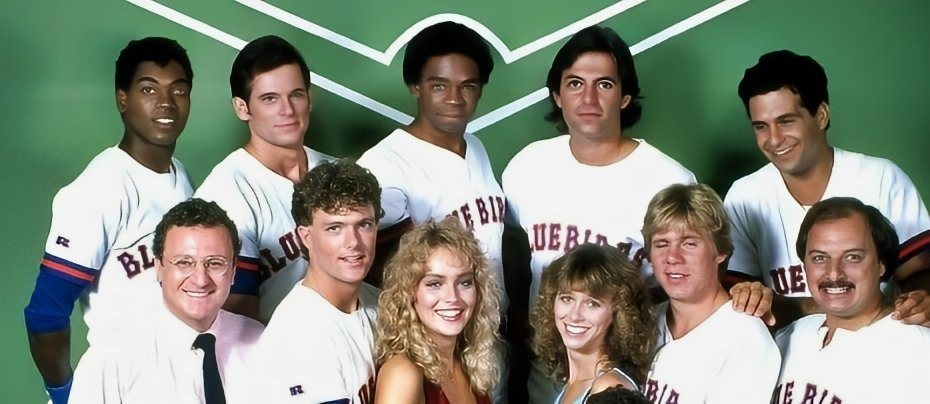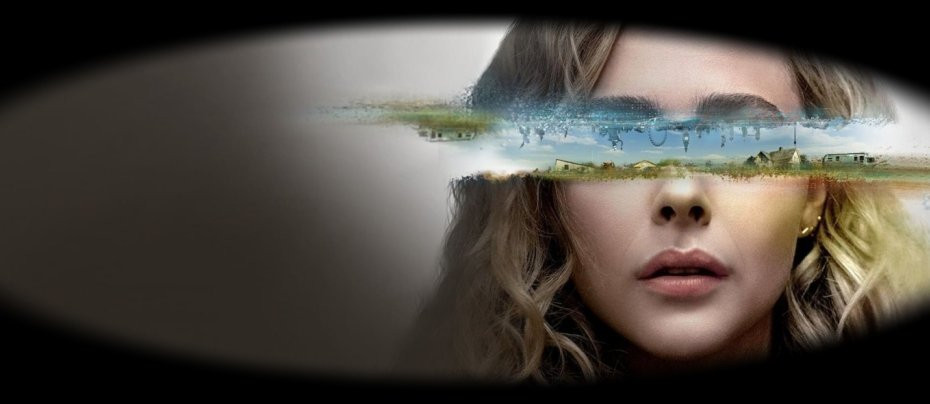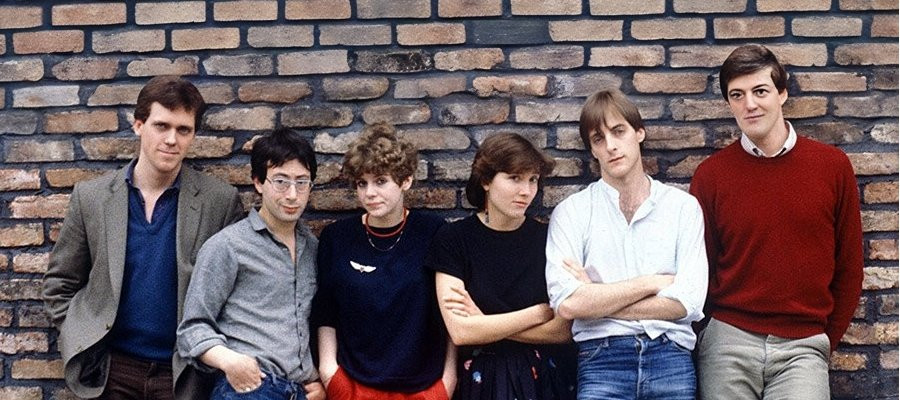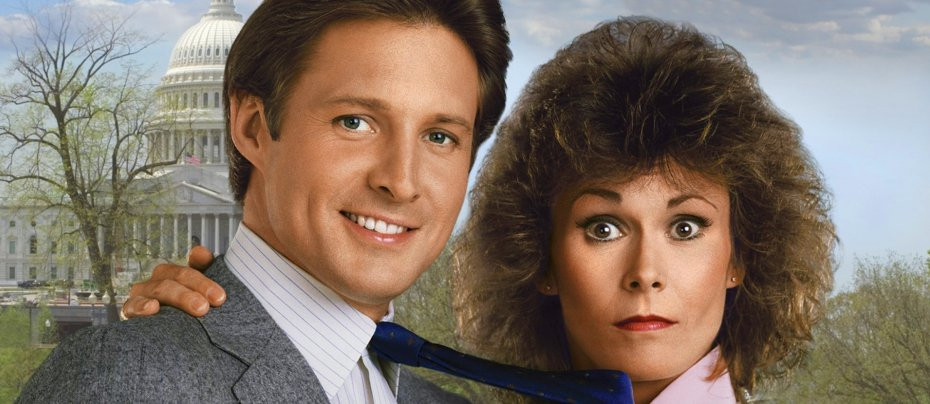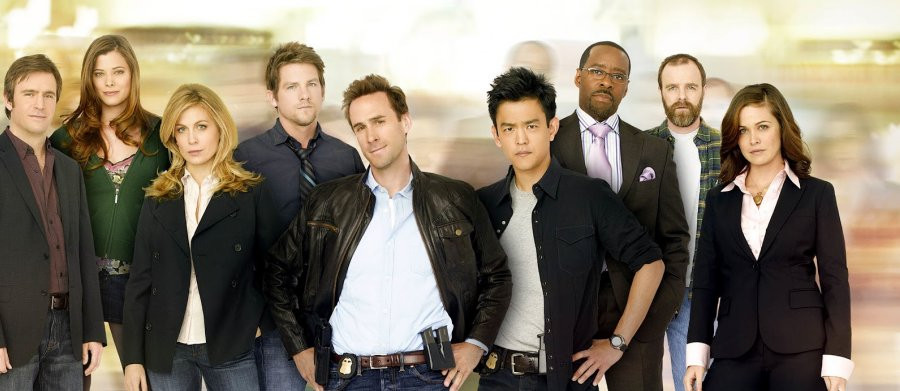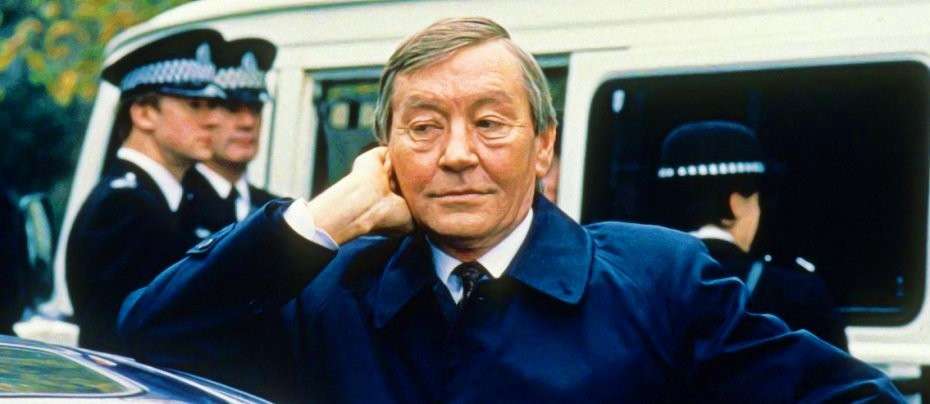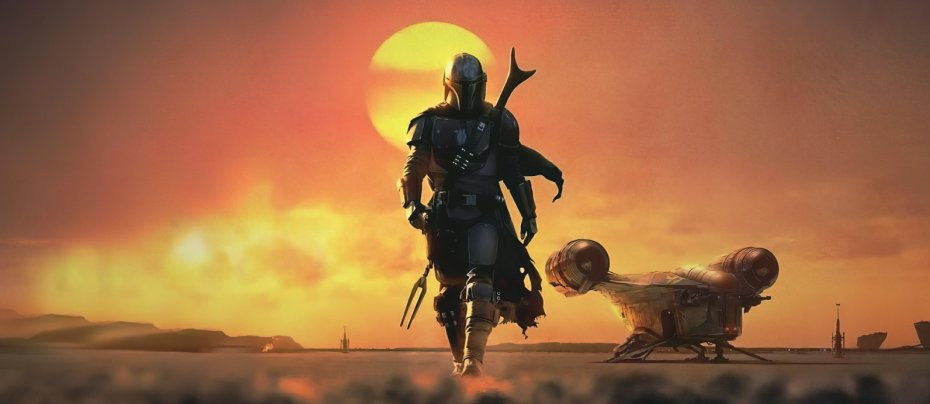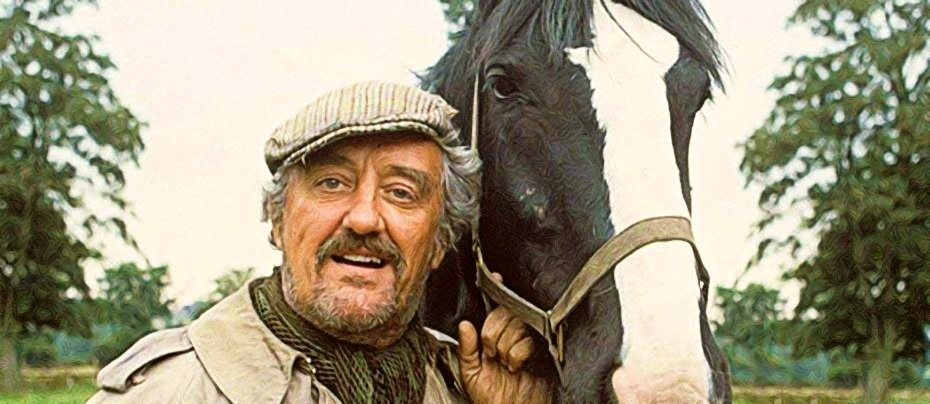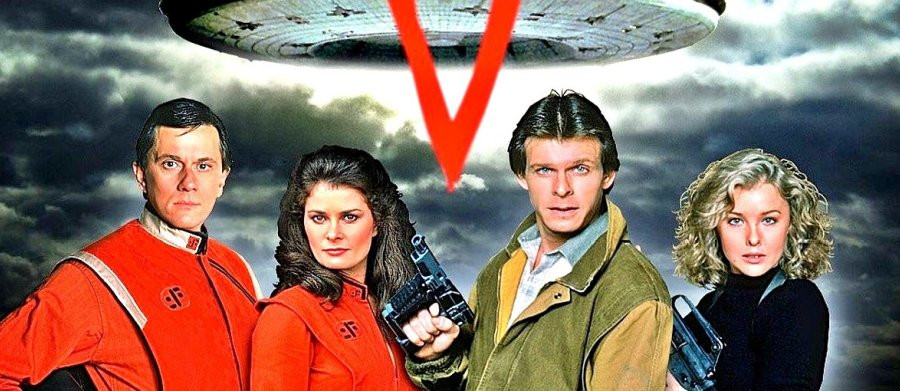
V
1983 - United StatesReview: John Winterson Richards
This is a review of two American "miniseries" - the 1983 'V,' now usually known as 'V: the Original Miniseries,' and its immediate sequel, the 1984 'V: the Final Battle' - which were both shown together as one in the United Kingdom.
Indeed, their first British broadcast turned out to be something of an event. The BBC had won the rights to broadcast the Los Angeles Olympics, so ITV used 'V' as relatively cheap schedule fodder, something to fill the evenings they expected to lose to the Beeb anyway. Yet 'V' turned out to be a surprise ratings hit. It seems that there are quite a lot of people not interested in pretending to be excited about sports they never usually watch.
With the wonderful benefits of hindsight, it should be no surprise to see how 'V' appealed to many different groups in this category. Women liked the human drama and strong female characters, young people liked the action adventure, nerds loved the science fiction, and more intellectual viewers appreciated a particularly sophisticated social and political subtext.
While Sinclair Lewis is not given a credit, scriptwriter Kenneth Johnson is quoted as saying that 'V' was originally intended to be an adaptation of Lewis' famous 1935 anti-Fascist novel 'It Can't Happen Here,' but NBC executives, dazzled by the revival of science fiction in the wake of 'Star Wars,' decided to turn the Fascists into Aliens From Outer Space - ironically referencing the "Red Scare" science fiction of the 1950s.
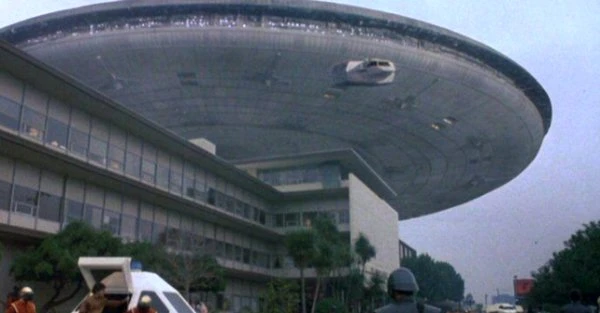
If so, it proved a rare example of network interference improving a project, and in any case much of the original intent remained obvious to critics and viewers. When the good looking and apparently benevolent Aliens, known as "The Visitors" land on Earth, they have a particular appeal to young people, whom they recruit into an organisation deliberately reminiscent of the Hitler Youth. As the Visitors begin to take control of the Government and media, they target scientists for elimination. So the audience is offered the irony of persecuted scientists being given shelter by Jews.
While most are slow to accept that the Visitors are a threat, thanks to their expert manipulation of the media, a Resistance movement begins to develop. Like their counterparts in Occupied Europe in the early 1940s, the resistors adopt the letter V, for Victory, as their symbol.
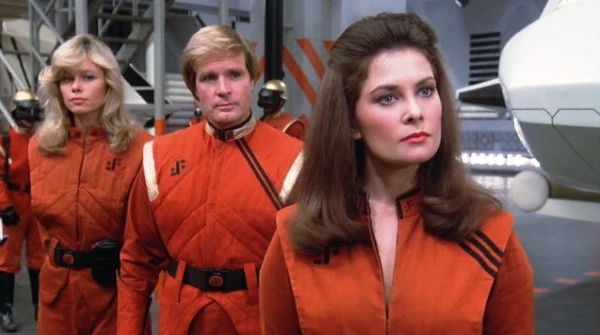
More subversively, there is a subtext within the subtext as the show tries to connect that European Resistance of the 1940s with leftist politics in America in the 1980s. For example, the left wing FMLN rebels in El Salvador are portrayed favourably. At that time, the Reagan Administration was supporting the centre-right government there against the rebels, while simultaneously backing the Contra rebels against the left wing Sandinista government in neighbouring Nicaragua. Many in Hollywood took the opposite position, supporting the Sandinistas and the FMLN. Rather embarrassingly for these would-be champions of The People, the people of Nicaragua later voted the Sandinistas out as soon as they were given the chance and the people of El Salvador elected a FMLN President only after many years of free elections following the end of the conflict.
In the meantime, in this and other ways, the Resistance in 'V' represent a fantasy version of the ideal popular movement in the minds of the Hollywood left at the start of what turned out to be a fairly long period of Republican rule that took American politics as a whole in the other direction. This changing reality may have influenced the introduction of a right wing character - or the Hollywood idea of a right wing character - in the second half, V: the Final Battle.
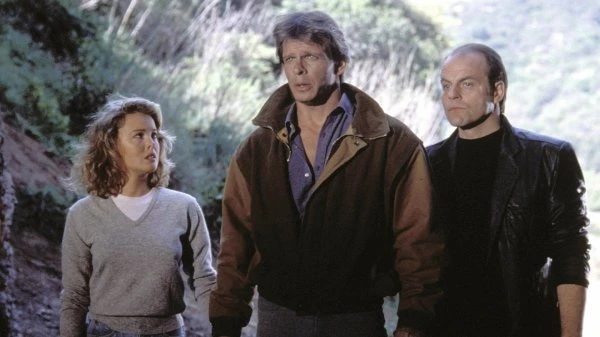
This is Ham Tyler, a hardened mercenary who is obviously intended to be unsympathetic - except he is played by Michael Ironside, which immediately makes him the most interesting and memorable character in the Resistance. The Canadian Ironside has a gift for playing authority figures, as in 'Starship Troopers' and Top Gun,' and villains, as in 'Total Recall' and 'Scanners.' Here he is somewhere between the two. His authority comes from his experience as a trained soldier, but the fact that he is a professional killer also brings a heart of darkness into the Resistance, as well as a much needed shot of energy and realism to the whole production.
This had become something of a necessity by that point, because frankly the Resistance were getting too nice to be true - and not a little bland.
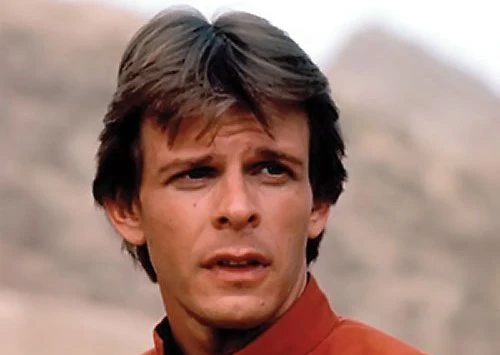
Their nominal leading man is television reporter Mike Donovan, played by Marc Singer, an actor otherwise best known for being comprehensively out-acted by a pair of ferrets in the 'Beastmaster' films. Most of the other Resistance characters are fairly stereotypical. In keeping with the show's trendy politics, they are actually led by a woman, which was still a big deal back in the Eighties - Margaret Thatcher notwithstanding - but there is little in Faye Grant's performance as Juliet Parrish to suggest why this is a person whom men, or other women, would follow freely.
For real Woman Power, we need to look to the other side, to the Visitors. Although their Supreme Commander is a man, their real driving force is their ambitious chief scientist and propagandist Diana, played with relish by Jane Badler. Hers is the face that tends to appear in most of the publicity for the show, and which tends to be best remembered, especially by males of a certain age group.
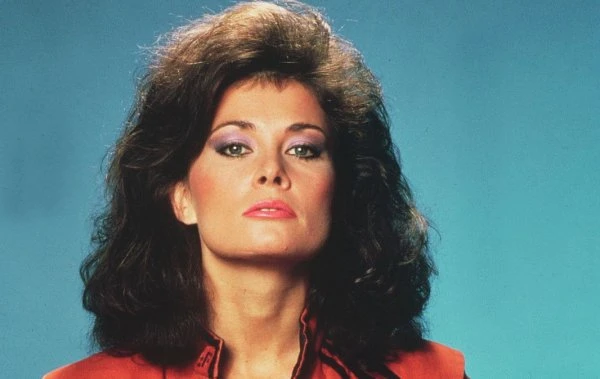
Seeing what was working, the producers doubled down on it and brought in another strong female Visitor in V: the Final Battle. This is Pamela, Diana's Squadron Commander and superior, who resents the fact that Diana has influence disproportionate to her subordinate rank in the chain of command. Played by the ever enjoyable Sarah Douglas, an accomplished actress who has made a speciality of beautiful villainesses, Pamela seems more of a threat to Diana than the Resistance ever does. It being the Eighties, their sparky relationship - we would probably have said bitchy back then - combined with the big hair obviously evoked the sort of female rivalry that was then fashionable in shows like Dynasty, except in Fascistic space uniforms rather than expensive dresses with huge shoulder pads.
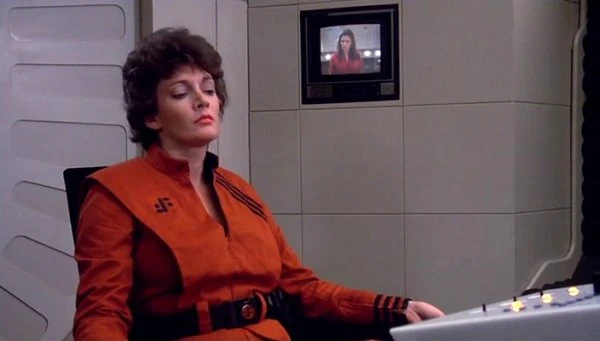
Their interactions are so much fun that it is easy to forget that we a watching a pair of lizards. Yes, literally - because it turns out that the Visitors are all lizards in disguise. Curiously, this discovery is presented as more shocking to the humans, including the right-on Resistance, than the later revelation that the Visitors are here to enslave us, harvest us for food, and strip the Earth of all its natural resources including its water. It is assumed that the mere fact that the Visitors do not look like us is enough to turn us against them - an oddly racist notion, especially given the show's politics.
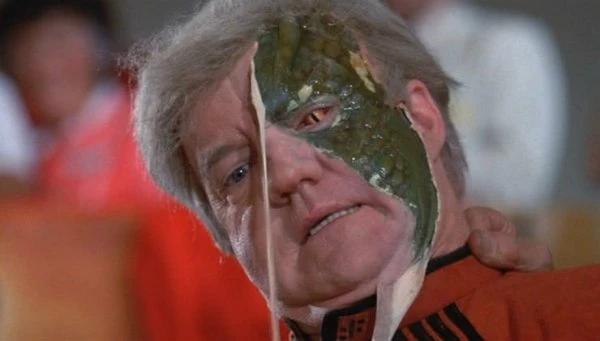
As with so many such projects, the best example being Stanley Kubrick's feature 'Spartacus,' it is the Bad Guys who turn out to have the most interesting characters and the best lines, and, although we feel obliged to sympathise with the Good Guys, they are dull - apart from Ham Tyler - and the time we spend with them is something of a duty. Secretly we are eager to sneak off to get back to the villains and their scheming.
There are, however, some strong performances on the human side, in addition to Ironside's. The most moving is one of the best in the long and distinguished career of the veteran Leonard Cimino, who plays a Shoah survivor whose grandson is seduced into the Visitors' youth organisation. He is given two particularly moving scenes, in which he reminds his family of their duty to aid the persecuted, and in which he introduces graffitists defacing a Visitor poster to the 'V' symbol.

Thomas Hill does well in what could have been a cliched part as a priest, a left wing priest of course, who gives Diana some brief moral qualms - before she resolves them in predictable Diana fashion. Also on the human side, if not exactly human, Robert Englund shows that there is more to him than Freddy Krueger, and that there is an actor of considerable skill beneath his 'Nightmare on Elm Street' make up, as a sympathetic Visitor taken prisoner by the Resistance.
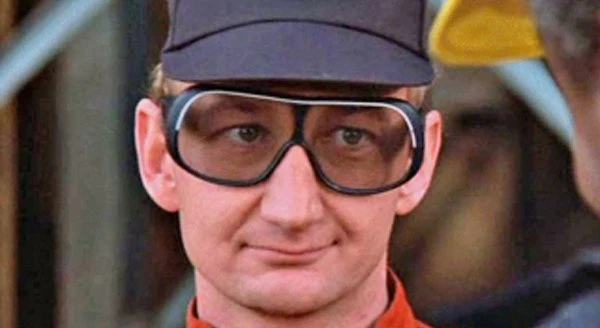
Sadly, the fascinating hints of political intrigues and divisions among the Visitors were not followed up properly. Nor was the important storyline from the first season that there is another alien race of whom the Visitors themselves are afraid and to whom the humans broadcast an appeal for help at the end of the first half of the combined "miniseries." This seems to be forgotten entirely in the second half, possibly because it was during the making of V: The Final Battle that original writer Johnson parted company with the project. He has suggested that the appeal might have proved to be a bit of a mistake, since he intended to make these other aliens even worse than the Visitors.
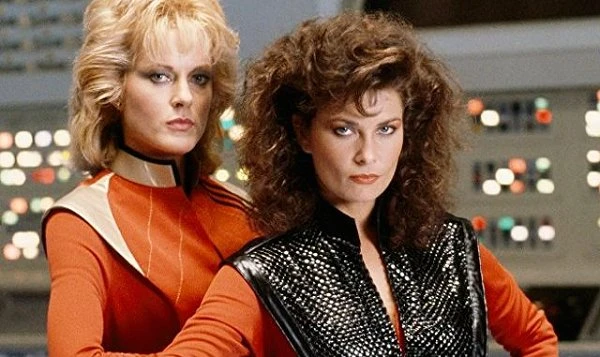
As it was, the new writers handed a rather easy victory to the human race in the final act, as always tends to happen when Earth is invaded by powerful alien fleets with unimaginably superior technology - 'War of the Worlds,' 'Independence Day,' 'Mars Attacks,' etc. In a vain attempt to make up for this rather lame ending, a regular episodic series later in 1984 gave the Visitors a second chance, but it proved impossible to capture lightning in a bottle again. Lacking the tight urgency of the "miniseries" format, the story wandered off and the series was cancelled after one season. Then in 2009, there came a second series, a complete "reboot" - but that is perhaps a story for another day.
John Winterson Richards
John Winterson Richards is the author of the 'Xenophobe's Guide to the Welsh' and the 'Bluffer's Guide to Small Business,' both of which have been reprinted more than twenty times in English and translated into several other languages. He was editor of the latest Bluffer's Guide to Management and, as a freelance writer, has had over 500 commissioned articles published.
He is also the author of ‘How to Build Your Own Pyramid: A Practical Guide to Organisational Structures' and co-author of 'The Context of Christ: the History and Politics of Rome and Judea, 100 BC - 33 AD,' as well as the author of several novels under the name Charles Cromwell, all of which can be downloaded from Amazon. John has also written over 60 reviews for Television Heaven.
John's Website can be found at John Winterson Richards
Seen this show? How do you rate it?
Seen this show? How do you rate it?
Published on April 29th, 2020. Written by John Winterson Richards for Television Heaven.


